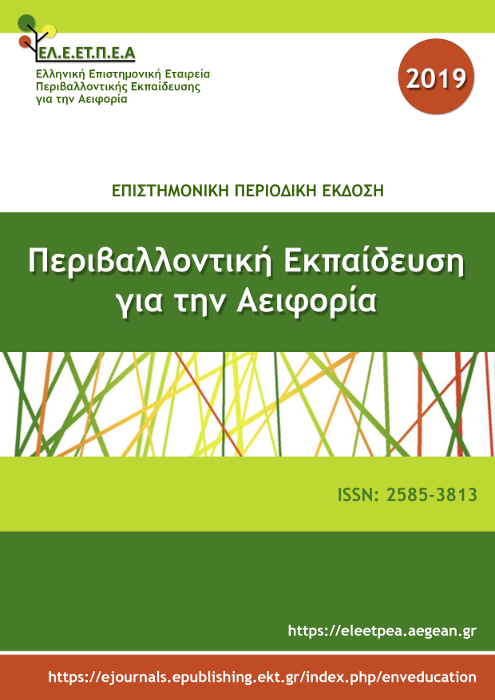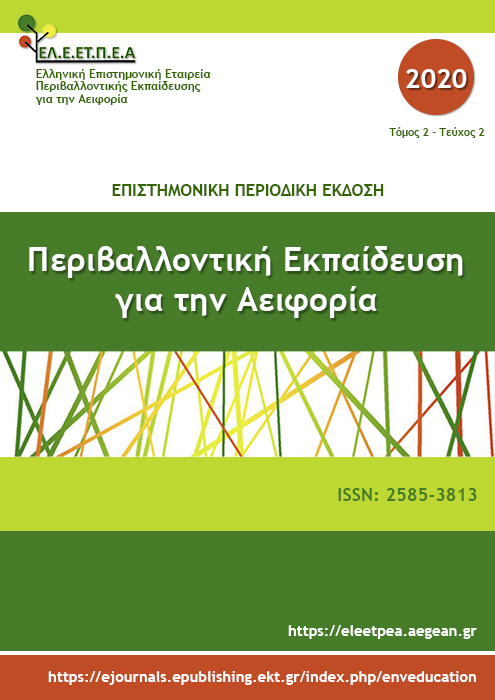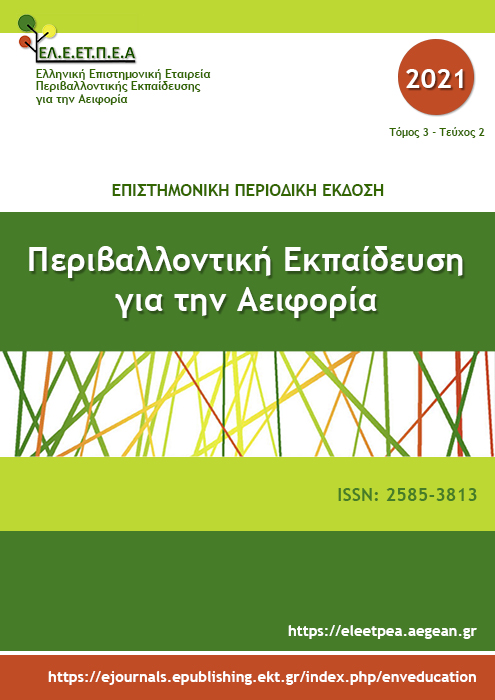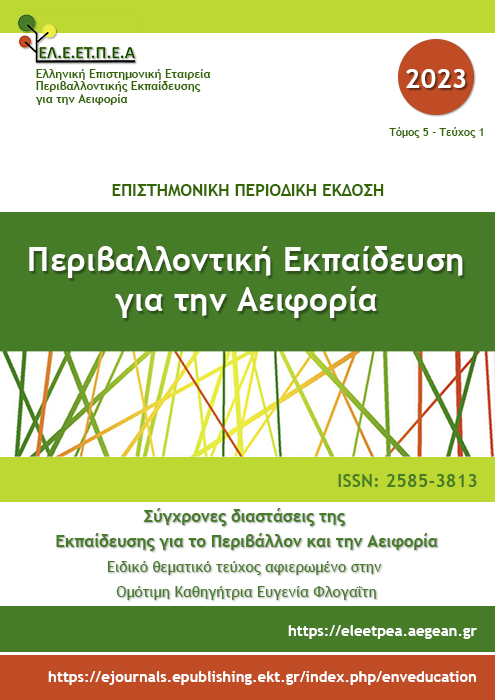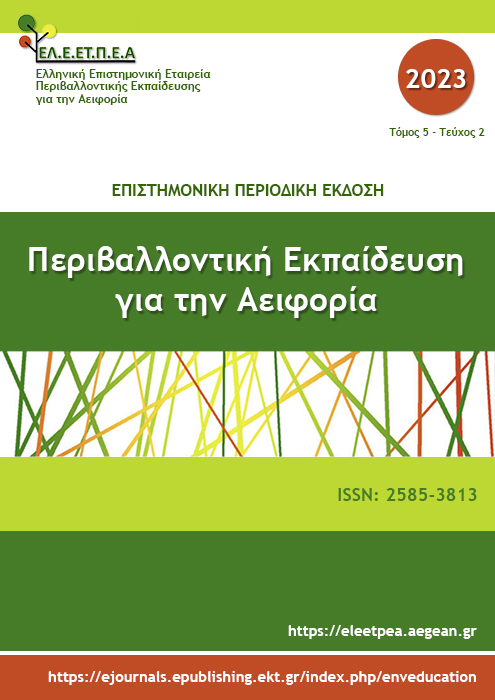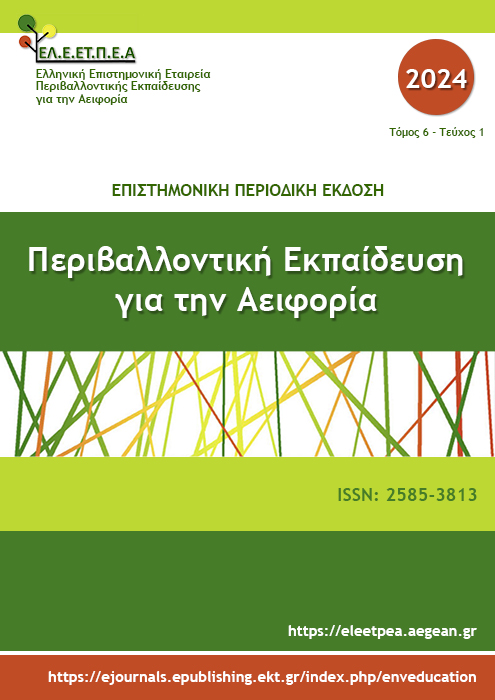Έρευνα αξιολόγησης εκπαιδευτικού υλικού περιβαλλοντικής εκπαίδευσης ενηλίκων. Μία μελέτη περίπτωσης
Abstract
Article Details
- How to Cite
-
Γρίλλια Π.-Μ., & Δασκολιά Μ. (2019). Έρευνα αξιολόγησης εκπαιδευτικού υλικού περιβαλλοντικής εκπαίδευσης ενηλίκων. Μία μελέτη περίπτωσης. Environmental Education for Sustainability, 1(1), 25–43. https://doi.org/10.12681/ees.17357
- Section
- Articles

This work is licensed under a Creative Commons Attribution 4.0 International License.
Authors retain copyright and grant the journal right of first publication with the work simultaneously licensed under a CC-BY-NC-SA that allows others to share the work with an acknowledgement of the work's authorship and initial publication in this journal.
